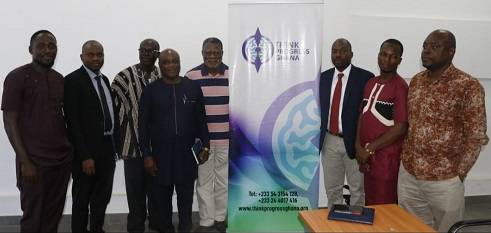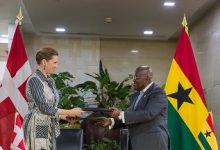
THINK Progress Ghana, a policy think thank in collaboration with the Ghana Institute of Management and Public Administration(GIMPA) chapter of the Graduate Students Association (GRASAG) held a lecture on Tuesday to discuss pertinent issues in Ghana’s energy sector.
The discussions, led by the Chief Executive Officer (CEO) of the Independent Power Generators Ghana (IPGG), Dr Elikplim Kwabla Apetorgbor focused on evaluating the opportunities and challenges of the country’s power sector.
It brought together energy experts, media practitioners, senior lecturers of GIMPA, renowned fellows of Think Progress Ghana and some students of GIMPA and the Islamic University.
According to Dr Apetorgbor, the recent 1.52 reduction in electricity tariffs announced by the Public Utilities Regulatory Commission (PURC) was worrying because the decrease could pose a substantial obstacle to the Electricity Company of Ghana’s (ECG) ongoing debt restructuring initiatives, hindering their ability to fulfil financial obligations.
Dr. Apetorgbor highlighted the substantial financial pressures faced by the sector and cast doubts on the feasibility of debt restructuring given the reduced tariffs.
He expressed doubt regarding the sustainability of their operations in the face of a potential tariff reduction of around 30 per cent or 40 per cent, questioning the party responsible for clearing their debts.
Clarifying the nature of the debts, Dr. Apetorgbor said that they are not derived from savings or profits, making the restructuring process considerably challenging.
A senior fellow of Think Progress Ghana, Dr Kwami Adanu on his part underscored the need for the country to refrain from entering new commitments to thermal power contracts.
Instead, he urged the development of strategies to secure funds for addressing the growing debts within the energy sector.
He said “In considering the medium to long term, it’s evident that our nation should investigate microgrids. These systems often leverage renewable energy sources, and that should be our main focus.”
President of GRASAG-GIMPA, Madam Sitsope Apetorgbor in her remarks underscored the crucial role of energy in national life, especially in household management and its notable influence on women, while expressing worry about the consequences of energy shortages, affecting essential aspects of life.
She also urged women to develop interest in energy policies and called for the involvement of females at the decision making levels in Ghana’s energy sector to help inject more understanding and sensitivity into energy pricing concerns, especially for women managing small enterprises reliant on energy.
Touching on the experiences of women in food businesses grappling with energy-related issues, she mentioned the significant influence of energy costs on daily life, saying such perspectives underscored the diverse implications of reduced tariffs on debt restructuring, household management, and the challenges encountered by various sectors relying on consistent and affordable energy sources in Ghana.
BY RAISSA SAMBOU







